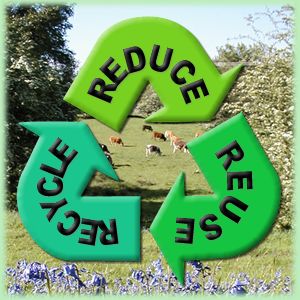Any non-biodegradable i.e. non-organic material that cannot be broken down by micro-organisms if accumulated in excess amounts is going to be harmful to the environment. About millions of tones of plastics are produced annually though most of it goes into landfills, substantial amounts end up in the sea. This affects almost every living organism either directly or indirectly. Some trash like glass is biodegradable but it will take about a million years to degrade. Producing these use up a lot of our most non- renewable resources and thus the need for this production to be controlled. Also their feasibility and easy accessibility make them really useful and convenient. Therefore completely eliminating their usage is impossible.And the most eco-friendly solution to do so is recycling.
I always thought that plastics float around on water. Well it’s not that what I thought was wrong, but when we see video footages of huge amounts of plastics and other non-biodegradable wastes floating in the sea, and start feeling concerned for the dolphins and other sea creatures, we need to know that this waste is a fraction of what actually exists in the sea. As plastics stay in the sea, they become fouled by marine organisms and this alters their overall density, due to which they sink to the seabed. And obviously a lot of sea creatures eat this waste or suffer by getting entangled in them. Eating these wastes lead to suffocation or blockage of digestive tract. Also Japanese research shows that the plastics floating on the surface are attractive to hydrophobic chemicals or contaminants such as pesticides. These stick to the plastics and enter the food chain when marine animals eat them. A recent US report stated that about 100,000 sea animals die every year just because of plastics which account for 60-80% of the waste.
Although a lot of activities are being taken up by people from around the world because of the increasing awareness of ill-effects of plastics. In comparison to the accumulated amount, the efforts are not sufficient to control the damage. Most people despite knowing about the situation do not implement recycling into their lives and as a result in many countries, non-biodegradable waste accumulate on the streets and are eaten by stray cattle, they become breeding grounds of mosquitoes and play a major role in spreading diseases like malaria, typhoid, diarrhea, cholera etc.
Personally even I fell into the same category before I saw my neighbor’s dog die because of choking due to some plastic that he ate from the streets. I know that this was pretty lame, that I started caring for the environment after I was affected personally, but then I hope others are not like me.

No comments:
Post a Comment